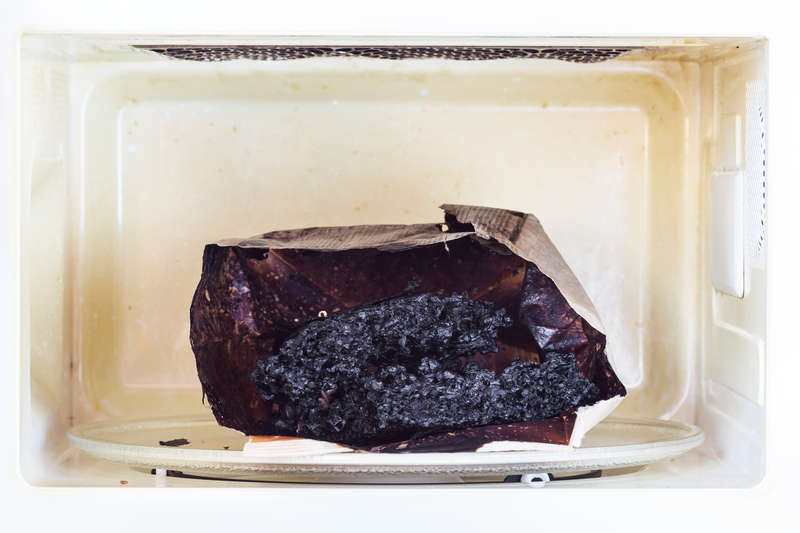Polypropylene Carpet: Should You Invest in One?
Posted on 11/03/2025
Polypropylene carpet, often known as olefin carpet, has gained significant popularity in the flooring market. It's a synthetic fiber carpet providing an appealing blend of affordability and durability. But should you invest in one for your home or office? This article provides a comprehensive overview, exploring the key features, benefits, drawbacks, and potential tips to help you decide.
Understanding Polypropylene Carpet
Polypropylene is a type of plastic polymer that is both water and stain-resistant, making it a practical choice for households and businesses. It belongs to the Olefin fiber family and is ranked as the second most commonly produced fiber, after polyester. With advancements in technology, polypropylene carpets come in various styles, colors, and patterns, giving consumers a broad array of choices.

Advantages of Polypropylene Carpet
1. Affordability: One of the most significant advantages of polypropylene carpets is their cost-effectiveness. They are considerably cheaper than natural fiber carpets, making them accessible to a wider range of consumers.
2. Stain Resistance: Polypropylene fibers are inherently resistant to stains due to their low absorbency rate. Liquids and dirt are less likely to penetrate the fibers, making clean-up easier and maintaining the carpet easier.
3. Color Retention: These carpets are highly resistant to color fading. The color is locked into the fiber during manufacture, ensuring that your carpet retains its vibrant look for a longer period.
4. Chemical Resistance: The fibers are resistant to harsh chemicals, reducing the risk of damage from household cleaning agents.
Disadvantages of Polypropylene Carpet
1. Less Durability: While polypropylene carpets are durable, they are not as resilient as some other materials like nylon. They can crush under heavy furniture and wear out quicker in high-traffic areas.
2. Heat Sensitivity: Polypropylene fibers have a low melting point, making them susceptible to heat damage. Placing hot items or exposing the carpet to sunlight over long periods can cause the fibers to melt or discolor.
3. Static Electricity: These carpets can generate static electricity, which can be an annoyance in certain environments.
Tips for Maintaining Polypropylene Carpet
1. Regular Vacuuming: Frequent vacuuming will prevent dirt and debris from settling into the fibers, extending the life of your carpet.
2. Spot Cleaning: Address spills immediately by blotting (not rubbing) with a damp cloth. Use a carpet cleaner suitable for polypropylene to avoid damaging the fibers.
3. Avoid Heavy Furniture: Place furniture pads under heavy items to prevent fiber crushing. Rotate furniture occasionally to distribute weight evenly.
4. Professional Cleaning: Consider a professional cleaning service once a year to maintain the quality and appearance of your carpet.
Pros and Cons
Pros:
- Affordable
- Stain-resistant
- Colorfast
- Chemical-resistant
Cons:
- Less durable in high-traffic areas
- Sensitive to heat
- Prone to static electricity

Conclusion
Polypropylene carpets offer a budget-friendly, stain-resistant flooring option ideal for certain environments. They are suitable for homes with children and pets, rental properties, and offices where cost-efficiency is a priority. However, they may not be the best choice for areas with heavy traffic or exposure to direct sunlight.
Takeaways
Investing in a polypropylene carpet can be a smart choice if you prioritize affordability, stain resistance, and vibrant colors. However, consider its limitations, such as lower durability and heat sensitivity, when making your decision. Regular maintenance and mindful placement can help extend the life and appearance of your carpet.
By weighing the advantages and disadvantages, you can make an informed decision on whether a polypropylene carpet meets your specific needs. In summary, if you're looking for an economical, easy-to-clean carpet option and you can manage its upkeep necessities, a polypropylene carpet can be a worthy investment.
Latest Posts
Effortless Steps for Oven Cleaning Like a Pro
Eco Cleaning Solutions That Are Safe, Effective, and Planet-Friendly
Fast and Efficient Ways to Eliminate Grease Stains from Everyday Items




